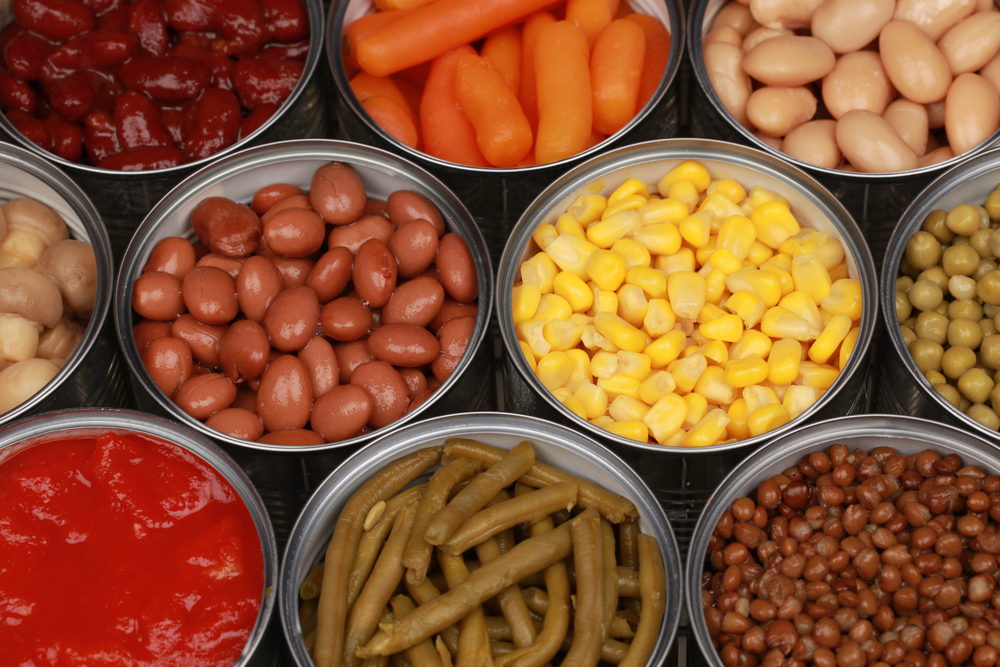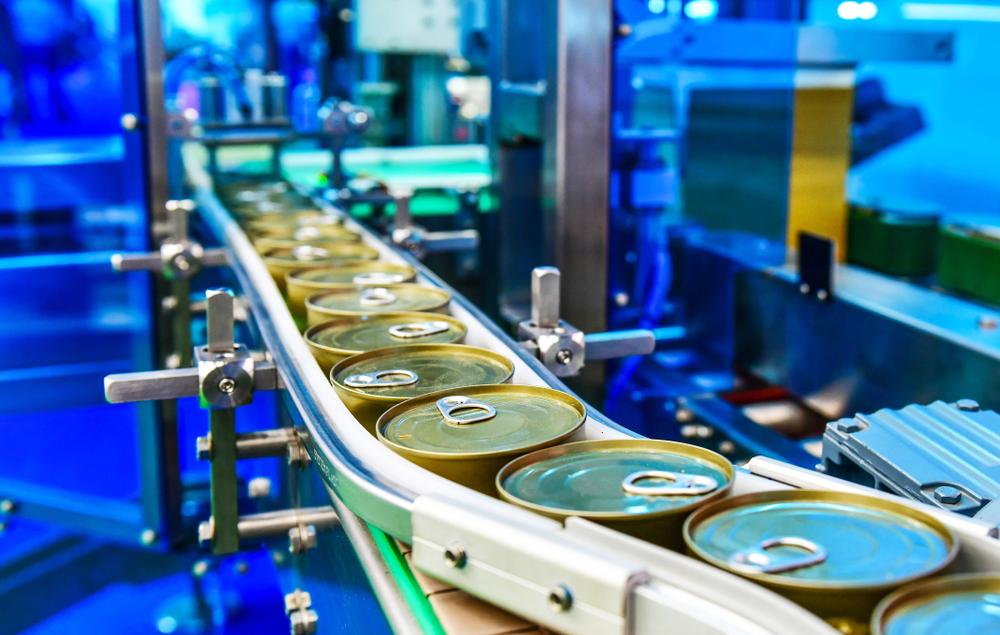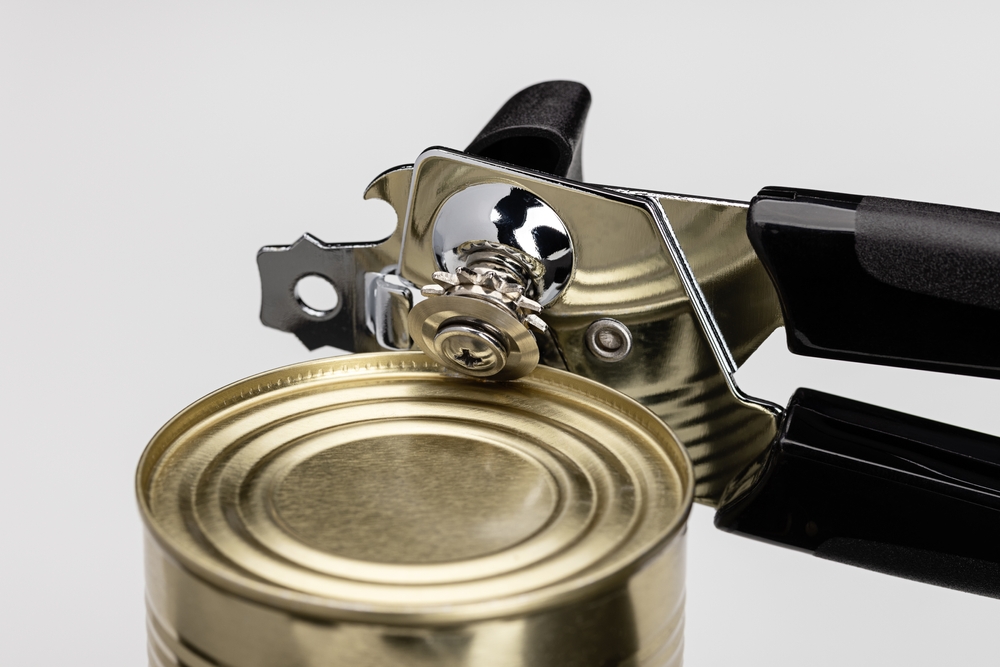Here’s why you should avoid canned foods!
Opening up the pantry and grabbing a can of beans, soup, or fruit is the ultimate easy dinner solution. When you don’t have the time or energy to cook, canned foods are great because they promise quick, affordable access to nutrients.
The canning process makes these foods shelf-stable and safe to consume for years. For people with limited budgets, hectic lifestyles, and not much cooking experience, these goods are a lifesaver!
But are they really?
Although it sounds like canned foods provide some real benefits in terms of longevity, convenience, and affordability, it’s worth looking at the potential drawbacks before relying on them too heavily. Here’s why you should avoid canned foods!

1. Higher sugar and sodium content
Sodium is added to most canned foods as a flavor enhancer or preservative. For instance, one cup of canned soup can contain more than 1000 mg of sodium, which is almost half of the daily recommended limit. Sure, consuming one once in a while won’t probably do any harm, but you definitely should not overdo it.
According to nutritionists, eating foods with a high amount of sodium has been linked to high blood pressure, stroke, and heart disease. That’s why health experts say it’s better to avoid canned foods as much as possible.
Moreover, canned fruits are often filled with sugary syrups, increasing their calorie and sugar content. For example, half a cup of canned peaches can have more than 15 grams of added sugar. Consuming too much of it is associated with diabetes, obesity, liver disease, and more.
2. Nutrient loss
Another reason why you should avoid canned foods is because they tend to deliver fewer nutrients than most people think. Canned goods go through a high-heat process that depletes nutrients like vitamins B and C.
According to a recent study, canned vegetables and fruits contain lower amounts of vitamin C, antioxidants, and phytonutrients compared to their fresh or frozen counterparts. Sure, it’s better to have those instead of a junk meal, but make sure you don’t always choose the canned product. By the way, if you’re looking for some meal inspiration, here’s a cookbook with plenty of quick recipes.
Another downside is that canned produce often tends to be picked before peak ripeness, which is when the nutrient levels are highest.
In other words, avoid canned foods and stick with fresh or frozen alternatives.
3. Texture and taste issues
The canning process affects the goods in many ways, and changing the taste and texture is one of them. It can alter the texture of foods, making them soggy and mushier compared to fresh or frozen alternatives. Canned fruits and veggies can lose their crispness and wind up overcooked and less appealing in terms of mouthfeel.
Moreover, the high heat process also alters the chemical composition of the food, dulling natural flavors. This often results in canned goods tasting more metallic and less vibrant.
So, if you want a meal packed with flavors and aromas, avoid canned foods and go for the fresh version.

4. BPA exposure risk
Cans are usually lined with BPA, a chemical that can seep into the food over time. Scientifically known as bisphenol A, it’s in over 90% of cans, a study shows. The research has also found that BPA exposure is linked to obesity, brain development issues, hormone problems, and cancer.
According to the study mentioned above, it’s clear that eating canned goods is a leading cause of BPA exposure. In other words, you can only reduce your BPA exposure if you avoid canned foods.
Scientists also analyzed a group of people, and participants who ate 1 serving of canned soup daily for five days straight experienced more than a 1,000% increase in the BPA levels in their urine.
While some companies now use BPA-free cans, it’s pretty impossible to know for sure unless the label mentions it clearly.
Read on to discover other reasons why you should avoid canned foods!
5. Higher cost over time
Although canned goods seem budget-friendly at face value, buying fresh produce often ends up being less expensive in the long run. Now, canned foods aren’t always expensive, but they can sometimes be. This is because they have a longer shelf life and don’t need to be refrigerated.
Furthermore, canned products are heavy, which means you get less actual food for the weight. But that’s not all; when you consider the nutrient loss, you are basically not getting as much value per dollar spent.
This being said, avoid canned foods if you’re on a budget and want to spend your money wisely.
6. Highly processed
Canned items are considered ultra-processed foods because they undergo heavy industrial processing. While this gives them a long shelf life, it also strips away natural fiber. This doesn’t apply to minimally processed foods, such as canned beans, peas, tomatoes, corn, or other vegetables, but canned meals like soup, stew, or pasta. So here’s another good reason why you should avoid canned foods.
Several studies link highly processed food consumption to a higher risk of diabetes, cardiovascular disease, and even cancer. That’s why healthcare experts recommend avoiding canned foods that contain plenty of ingredients. Minimally processed fresh or frozen foods are a better alternative because they retain more health-promoting compounds.
7. Negative environmental impact
Cans require more materials, resources, and energy to produce than other methods, making their life cycle less eco-friendly. Non-biodegradable metal and BPA liner waste contribute to landfill buildup.
According to a study, for every ton of aluminum produced, around five tons of caustic red mud wastes are produced, as well as a host of other pollutants, including volatile hydrocarbons, toxic fluorides, NOx and SOx (contributors to acid rain and smog), and other industrial effluents.
The canning process also emits more greenhouse gases. The large-scale agriculture required for canned goods leads to water waste, soil depletion, and pesticide usage as well.
So, here’s another reason to avoid canned foods!
8. Encourage hoarding
The long shelf life of canned products enables people to accumulate large stockpiles that often go unused.
There’s reasonable stockpiling, which is when you buy in a bit more than usual to ensure you have enough food, but not so much that anything goes to waste. There’s also emergency stockpiling when a certain situation requires it, such as surgery or a pandemic. And there’s long-term stockpiling, which is rather food hoarding when people amass great quantities of everything.
This overbuying tendency can lead to expired foods, wasted money, and unnecessary strain on storage space.

9. More hassle to get the food
Next on our list of reasons why you should avoid canned foods is the inconvenience of opening them. Canned items require you to open the container using a manual or electric can opener before you can consume the contents. This involved an additional step compared to popping a frozen meal in the microwave or simply rinsing off fresh produce.
Dealing with jagged edges, struggling with a tricky can lid, or draining the liquids within can make canned goods more inconvenient and detract from their reputation for being easy and quick.
Of course, this reason alone may not be enough to make you avoid canned foods, but when you consider other reasons (like the ones mentioned above), it may make sense to give up on these products.
10. Safety issues
Last but not least on our list of reasons why you should avoid canned foods is, again, something related to safety. Cans, by nature, aren’t the safest objects on the shelf. To begin with, improper canning can make botulism spores survive, leading to severe food poisoning.
And due to their long shelf life, people are more likely to store cans in the pantry for long periods, thus increasing the chances of bulges, dents, or rust on the cans over time. Consuming foods from leaking, damaged, or swollen cans is very unsafe.
Opening the cans also poses a risk, as can openers can leave sharp edges behind, and it’s very common for people to cut their fingers because of them.
If you liked our article on why you should avoid canned foods, you may also want to read 8 Worst Canned Foods You Could Ever Buy.







